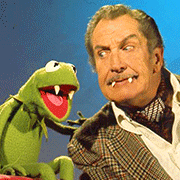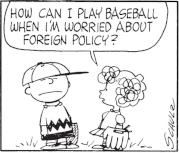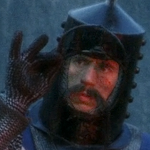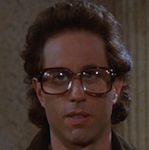|
VorpalBunny posted:Do you show them the difference between 4:3 correctly displayed and when it's stretched out? It's kind of hard to dispute the obvious evidence. And the evidence is stretched out is bigger, therefore better.
|
|
|
|

|
| # ? May 14, 2024 15:33 |
|
FishBulb posted:I hope your parents actually listen. My wife's parents don't believe anything I say because they are older than me and know better. Well, I just talked to my dad and he basically said that he didn't spend that much money on a tv to take a chance of ruining it. I suggested that I could send him some articles proving my point, but he insisted that he spoke to the manager at the store, so that guy obviously knows more about TVs than the internet. Although he finally admitted that I might be right, he is going to keep stretching because he "doesn't want to take the chance." God bless parents...
|
|
|
|
Old people are no good at anything.
|
|
|
|
OctoberBlues posted:Well, I just talked to my dad and he basically said that he didn't spend that much money on a tv to take a chance of ruining it. I suggested that I could send him some articles proving my point, but he insisted that he spoke to the manager at the store, so that guy obviously knows more about TVs than the internet. Although he finally admitted that I might be right, he is going to keep stretching because he "doesn't want to take the chance." Well, if he doesn't really care either way, I guess it's no big deal. It just sucks to see such a nice TV go to waste. It's really hard for me to watch stuff not on a DVR (I am always itching to pause or rewind what I'm watching) and to watch stuff that isn't in HD. And to watch SD stuff stretched makes everything worse. Nice of that manager guy to spread such misinformation.
|
|
|
|
Wait, if it's a CRT is it really even displaying the black bars? I thought the advantage of CRTs was that you got darker blacks because you didn't have a backlight behind pixels that aren't being used?
|
|
|
|
Is it wrong to have a really hard time appreciating old movies? Anything from the 1950s and before is just really hard to get into unless it's like The Wizard Of Oz or something. It just feels like such a departure from the cinematic language I'm used to. I never really get to the point of suspension of disbelief, I can't help but be 100% aware that I'm watching actors playing a role. All the roles seem strongly stereotyped and unbelievable because I never lived in a world where men and women carried themselves in that manner.
|
|
|
|
Magic Hate Ball posted:People just don't give a poo poo. Ever go to someone's house and they're watching a 4:3 program on their 16:9 HDTV all stretched out? They don't give a poo poo. As long as they can pretty much see the actors, they don't give a poo poo. Nobody gives as poo poo. It loving sucks. Yes, then when they leave the room I force it to the aspect ratio and play dumb if they ask about any black areas. But even funnier are the people I know who would rent widescreen DVD's and zoom in on them so the picture would fill the whole screen. *zoom* *zoom* ahh that's better.
|
|
|
|
Some theaters are horrible about framing. When I saw Wall-E and Kung Fu Panda, they were cropped to about 2:1 and the credits were sliced on the edges. When I saw Fantastic Mr. Fox, it was cropped all over. The subtitles for the "latin names" bit were completely off the screen. And it was 35mm! The Remote Viewer posted:Is it wrong to have a really hard time appreciating old movies? Anything from the 1950s and before is just really hard to get into unless it's like The Wizard Of Oz or something. It just feels like such a departure from the cinematic language I'm used to. I never really get to the point of suspension of disbelief, I can't help but be 100% aware that I'm watching actors playing a role. All the roles seem strongly stereotyped and unbelievable because I never lived in a world where men and women carried themselves in that manner. It depends on what you're seeing. What are some of the movies that turned you off? Part of the fun of seeing films from all eras, cultures, and languages is being exposed to departures from one's familiarities.
|
|
|
|
The Cameo posted:Clever way of showing that. Haha, thanks! I'm pretty sure if I said anything about an 'aperture plate' or 'scope' to the employees at some of the theaters I've had this problem at, they'd have no idea what I was talking about. Are there even actual projectionists working in theaters anymore? Usually the guy going up to the booth to 'check it out' is the guy that was sweeping up popcorn five minutes earlier. We're living in a sad age for movie theaters. Prices get higher every year and quality control is non-existent.
|
|
|
|
Egbert Souse posted:It depends on what you're seeing. What are some of the movies that turned you off? I can't think of any specific examples, I'm going to try to rent some older films and see if it's just a matter of quality. I guess if I hate Citizen Kane then I know the problem is with me. I think maybe the problem is that the emotional cueing is completely different. The things that directors rely on now to make the audience react in a certain way to a scene just weren't in play yet, or were different. If I go back to say, the 60s or 70s, the movies often feel a little bit surreal, and going farther back than that, they just feel emotionally dead.
|
|
|
|
The Remote Viewer posted:I can't think of any specific examples, I'm going to try to rent some older films and see if it's just a matter of quality. I guess if I hate Citizen Kane then I know the problem is with me. Citizen Kane is overused. It was an "art film" in 1941 and isn't considered mainstream even today. Yes, it's a great film, but even Welles made better films after that. Touch of Evil and The Trial would be good starts. If you like documentaries, especially more "pop" types like those of Errol Morris and Michael Moore, F for Fake would be a blast. The worst that can happen is that you'll be bored, but at least get references in today's pop culture better.
|
|
|
|
The Remote Viewer posted:Wait, if it's a CRT is it really even displaying the black bars? I thought the advantage of CRTs was that you got darker blacks because you didn't have a backlight behind pixels that aren't being used? Yes, but that just means the pixels will experience uneven wear. If you use the pillarbox region exclusively for a long time and then light up the sides, they will be brighter than the center. Of course, with modern TVs, this can take months, so it's not worth worrying about unless you use it for pillarboxing exclusively. Watch something HD once in a while, it looks better too.
|
|
|
|
codyclarke posted:Haha, thanks! Well, for the most part, projectionists are now more "operators" than actual projectionists. They're taught how to thread actual film and start digital ones, and that's it. If you go to a slightly rattier place that just seems to have good people working there (people that truly like movies), you might find yourself with a much higher rate experience, since those people will have to deal with older projectors, ones that break down more often, and will have to do things manually. Most of the problems customers have had at the place I work at, we've been able to fix because of our familiarity with our machinery. I don't work at a major chain, though. Most chain theaters have a high turnover rate, so most of the people probably aren't around long enough to develop the knowledge and skills required to make that sort of stuff work. However, some places also run union projectionists, in which case you're getting the top of the line. I know the Boston Common AMC used union projectionists there for the like six months I spent working at it.
|
|
|
|
The Remote Viewer posted:Is it wrong to have a really hard time appreciating old movies? Anything from the 1950s and before is just really hard to get into unless it's like The Wizard Of Oz or something. It just feels like such a departure from the cinematic language I'm used to. I never really get to the point of suspension of disbelief, I can't help but be 100% aware that I'm watching actors playing a role. All the roles seem strongly stereotyped and unbelievable because I never lived in a world where men and women carried themselves in that manner. It definitely takes more effort to 'get into' a mindset to watch older movies because of the exact reasons you are mentioning. The world of film making has changed dramatically over the decades and there are certain things you take for granted in modern films that you aren't going to see in older ones and a change in acting styles etc... It can make watching older films more difficult if you aren't used to it. The fact that you are willing to admit it or examine it puts you ahead of a lot of people. Just watch stuff with an open mind and remember that its different and stylistically not the same as what you are used to and it shouldn't be so bad. More you watch the less weird they will seem.
|
|
|
|
What's the process of converting 2D films into 3D?
|
|
|
|
The Remote Viewer posted:Is it wrong to have a really hard time appreciating old movies? Anything from the 1950s and before is just really hard to get into unless it's like The Wizard Of Oz or something. It just feels like such a departure from the cinematic language I'm used to. I never really get to the point of suspension of disbelief, I can't help but be 100% aware that I'm watching actors playing a role. All the roles seem strongly stereotyped and unbelievable because I never lived in a world where men and women carried themselves in that manner. I think the key is to find some director or actor you like and just try watching their movies. For me it was Hitchcock. Then you might start liking certain actors in his movies and you can watch their movies too. And not all old movies are equal. For example I see yesterday TCM had a Buddy Ebsen festival on. I think you'd have to point a gun at my head to get me to sit through something like that.
|
|
|
|
FishBulb posted:It definitely takes more effort to 'get into' a mindset to watch older movies because of the exact reasons you are mentioning. The world of film making has changed dramatically over the decades and there are certain things you take for granted in modern films that you aren't going to see in older ones and a change in acting styles etc... It can make watching older films more difficult if you aren't used to it. It doesn't bother me if everyone in an old movie is acting in a more theatrical style, but it's kind of jarring when the older and modern methods converge (like Marlon Brando vs. Vivien Leigh in Streetcar).
|
|
|
|
Boris the Blade posted:What's the process of converting 2D films into 3D? On a rough level it's akin to making cutouts of foreground and background things then having a computer calculate a space between them. The biggest problem you have is the fact that because it wasn't properly shot in 3D the slight difference between left and right will create holes that need to be filled in for the background and this is what makes the difference between a good 3D and a bad 3D transfer. 3D movies don't really have this problem as it's a fairly straightforward method to insert a second camera then tweak the focus. A bit more detail than I go into. http://www.slate.com/id/2243118/?from=rss
|
|
|
|
I can watch movies from about any era, but I still just cannot get into feature length silent films. Tried Metropolis. Got through it though it was at various point more like a trial rather than entertainment. Fell asleep during The Cabinet of Dr. Caligari, haven't seen it all yet.
|
|
|
|
the Bunt posted:I can watch movies from about any era, but I still just cannot get into feature length silent films. Tried Metropolis. Got through it though it was at various point more like a trial rather than entertainment. Fell asleep during The Cabinet of Dr. Caligari, haven't seen it all yet. Sounds like you just can't get into German Expressionism. Try some comedies. City Lights and Modern Times are good ways to ease into the medium, since they have a bit of music and sound effects. The Freshman, Safety Last, and The Cameraman are good ones too. If you want something serious: Lazybones, City Girl, and Lucky Star are a bit friendlier than Metropolis and Caligari.
|
|
|
|
I think Buster Keaton's movies hold up a lot better than Chaplin's, in terms of not feeling so dated. I'd try The General and The Navigator. Those are my 2 favorite silent movies.
|
|
|
|
Schweinhund posted:I think Buster Keaton's movies hold up a lot better than Chaplin's, in terms of not feeling so dated. I'd try The General and The Navigator. Those are my 2 favorite silent movies. The General is pretty great when it's on, but I always thought it suffered from pacing issues in the middle.
|
|
|
|
Silent comedy is easy to get into. If they're not shorts, the features tend to be only 45-70 minutes long. Also worth noting... try to see silents in the BEST QUALITY POSSIBLE. For example, there's dozens of ratty public domain copies of The General on DVD with canned music, while there is a fully restored BluRay (and DVD) with an orchestral music score. If you're new to silent comedy, I'd recommend renting this: http://www.amazon.com/First-Kings-Comedy-Collection-Golden/dp/B000UAE7K4/ref=sr_1_5?ie=UTF8&s=dvd&qid=1270306470&sr=8-5 It's a double feature of the 1960s compilations "The Golden Age of Comedy" and "When Comedy Was King". Basically, lots of clips from silent comedies with narration and sound effects. The prints used look great, too.
|
|
|
|
I'm reading an introductory textbook on film and it happened to mention directors only get 2-3 minutes of usable footage per day. How can that be true, considering everyone works 12-18 hour days?
|
|
|
|
Penpal posted:You wouldn't happen to know (or be able to find out easily) what the problem could be with a digital projector, would you? The manager of the theatre e-mailed me back, and said I could call him when he's back next week but I have no clue what to call it other than "cropped" or something or other. I wish I had a technical term so I could at least not sound like I'm making poo poo up. A digital projector (although I've never actually worked with one), I presume, would still require an aperture plate and correct lenses, since it's still beaming a light from a chamber (the only difference, I imagine, is the source - instead of starting and stopping a film 24 times a second, the hard drive is flashing a series of images 24 times a second), and proper framing requires an aperture plate that matches the lens that the light's going through in order to fully and correctly illuminate the screen. The term is pretty much "framing" - it's sort of a catch-all term that covers film not positioned correctly in front of the aperture, plate and lens issues, and even just curtain issues. Just be like "it was an issue with the framing, and from what I've heard from people who work with projectors, the aperture plate was set for a flat movie, not a scope one". He'll either have no clue what you're talking about or get it immediately. I hope this helps.
|
|
|
|
The Remote Viewer posted:I'm reading an introductory textbook on film and it happened to mention directors only get 2-3 minutes of usable footage per day. How can that be true, considering everyone works 12-18 hour days? I don't think they mean usable footage, I think they mean they get 2-3 minutes of screentime. It's because setting up takes a long time and then you have to shoot the same scene from a lot of angles to be able to edit, and then you're having to set up each time.
|
|
|
|
The Remote Viewer posted:I'm reading an introductory textbook on film and it happened to mention directors only get 2-3 minutes of usable footage per day. How can that be true, considering everyone works 12-18 hour days? It depends, but that doesn't sound wrong. There Will Be Blood, for example, had a sixty-day shoot and was about 160 minutes, which comes out to about 2.6 minutes of footage per day, average. A Serious Man took 44 days to shoot, and it's 106 minutes long, giving us an average of 2.4 minutes per day. On the other hand, The Shining took 200 days to shoot, and ran 146 minutes, which means that Kubrick got 0.76 minutes of footage per day, while Soderbergh's Che shot for 78 days and ran 268 minutes, meaning that he got, on average, 3.4 minutes a day. They're really just numbers; shooting a film is a long, complicated process with a lot of setting up and waiting around. I've never worked on a professional film set myself, and I'm sure people who have can get more detailed, but that's the gist of it. When you say everyone works 12-18 hour days that's not pure shooting. It takes a while to do things. If you've ever seen a making-of documentary then you've seen the waiting. Edit: Also what NeuroticErotica said.
|
|
|
|
The Remote Viewer posted:I'm reading an introductory textbook on film and it happened to mention directors only get 2-3 minutes of usable footage per day. How can that be true, considering everyone works 12-18 hour days? (What's the book?) This shooting ratio is defined by the script. Each script is broken down into 8ths of a page, that is each inch of script is 1/8th and from that the whole structure of the movie's shoot is arranged. The order of a shoot isn't in sequential order, very few films do that (E.T was one of them) as doing so would drastically blow out the shoot days unless you were at a set or you had two camera units between locations to try and contain the time. The production scheduler (a general term) analyses everything such as location, length of estimated script time vs screen time, people's availability, day and night and places everything into a layout that will later be the call sheet. Here's an example.  As you can see each day only shoots so many pages, between 3 or 5 depending on what is happening. Now these don't tell about the coverage and this is where time is eaten up. One scene could have several shots to cover wide, medium, reverses and so on, just look at any conversation between two people in a movie and count the shots, there's likely at least 6 or so each shot requires X amount of time to setup to measure, to mark and so forth even if it's only "one" scene for the day. Y.M.M.V of course; to use David Letterman's joke quote:The scene "Amy opens the window" takes half a day and perhaps ten shots in a big studio production:
|
|
|
|
The Remote Viewer posted:I'm reading an introductory textbook on film and it happened to mention directors only get 2-3 minutes of usable footage per day. How can that be true, considering everyone works 12-18 hour days? It sounds like just a poor choice of words as they probably mean 2-3 minutes of footage that they WILL use.
|
|
|
|
WebDog posted:Y.M.M.V of course; to use David Letterman's joke Since when is an indie shooting before 9? (Unless we went all night.)
|
|
|
|
Magic Hate Ball posted:It depends, but that doesn't sound wrong. There Will Be Blood, for example, had a sixty-day shoot and was about 160 minutes, which comes out to about 2.6 minutes of footage per day, average. A Serious Man took 44 days to shoot, and it's 106 minutes long, giving us an average of 2.4 minutes per day. On the other hand, The Shining took 200 days to shoot, and ran 146 minutes, which means that Kubrick got 0.76 minutes of footage per day, while Soderbergh's Che shot for 78 days and ran 268 minutes, meaning that he got, on average, 3.4 minutes a day. That would be an funny metric to use to analyze my favorite movies and see if there is any correlation. Shooting days divided by running time. I don't believe there is any location which has all that information organized though.
|
|
|
|
Roger Corman could get 45 minutes of footage in the final cut in one day, maybe for more than one film....
|
|
|
|
nm
hotgreenpeas fucked around with this message at 22:53 on Apr 4, 2010 |
|
|
|
The Cameo posted:A digital projector (although I've never actually worked with one), I presume, would still require an aperture plate and correct lenses, since it's still beaming a light from a chamber (the only difference, I imagine, is the source - instead of starting and stopping a film 24 times a second, the hard drive is flashing a series of images 24 times a second), and proper framing requires an aperture plate that matches the lens that the light's going through in order to fully and correctly illuminate the screen. From what I've worked with, most digital projectors don't have apature plates or the need to change lenses, so I don't think that's the case. Something similar happened at my theatre. The computer was sending an image to the projector at a resolution higher than that of the projector and instead of resizing it, the projector just displayed as much of the image as it could. So my guess is that's what was happening here. Alternatively, they could have bumped the projector and it moved from it's original position, or the maybe even zoomed in too far for some reason.
|
|
|
|
Egbert Souse posted:Roger Corman could get 45 minutes of footage in the final cut in one day, maybe for more than one film.... Corman pretty much worked like a maniac and threw all common convention to the winds. But he also rehearsed beforehand so when it came to shooting retakes weren't that common. Plus he often used multiple cameras or reused sets that cut down on production time as nothing needed to be built, just lit with an even spread and shot.
|
|
|
|
VorpalBunny posted:That drives me nuts! A friend recently bought a big HDTV, but doesn't have HD service. All of his shows were 4:3 stretched to 16:9, and he didn't seem to care. Why buy the HDTV, then?! (besides for the occasional Blu-Ray disc) My parents bought an HDTV so they could have something to hang over the fireplace in the living room. They also don't have an HD cable box ($5 more/month) and watch everything stretched-out. They have a valid point claiming they don't care, because I don't think either of them have sat down and watched an HD program ever. I should just start referring to my father as "strike 2" from now on.
|
|
|
|
PushingKingston posted:From what I've worked with, most digital projectors don't have apature plates or the need to change lenses, so I don't think that's the case. Learn something new everyday. Also aren't even digital projectors a couple hundred pounds at lightest, how could someone "bump" into them and knock them out of position
|
|
|
|
The Cameo posted:Learn something new everyday. Empire Theatres Manager Guy posted:I am in receipt of your comments regarding your recent visits to Studio 12 .I would be interested in speaking to you regarding them so that I can further follow up.Your comments are the first of this nature that I have come across.Although the movie that you viewed on both screens is not currently playing in those theatres now ,"Clash of The Titans" is.I watched this on both screens and there appears to be no difference.Both Cinema six and twelve were only converted to Digital 3D with in the last three weeks or so and if there are concerns I would like to nip them in the bud. I think it might be because the projectors are new? Gonna call him today. Also, a general movie question: Have any really good DP's gone on to direct really good films?
|
|
|
|
Penpal posted:Also, a general movie question: Have any really good DP's gone on to direct really good films? Jan DeBont was the DP on a bunch of great action films including "Die Hard" and "The Hunt for Red October". I know most of the films he directed suck, but "Speed" was good. I wouldn't call it "really good" but it wasn't bad. BrewingTea fucked around with this message at 15:49 on Apr 6, 2010 |
|
|
|

|
| # ? May 14, 2024 15:33 |
|
quote != edit
|
|
|

































